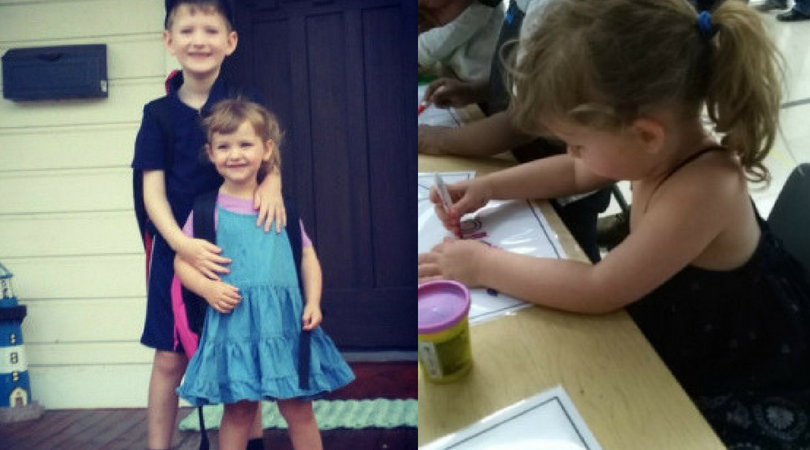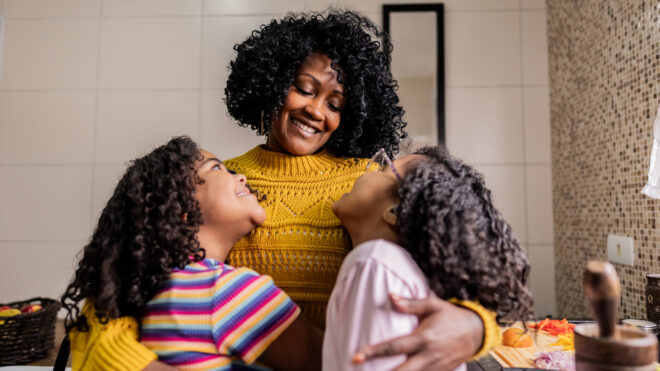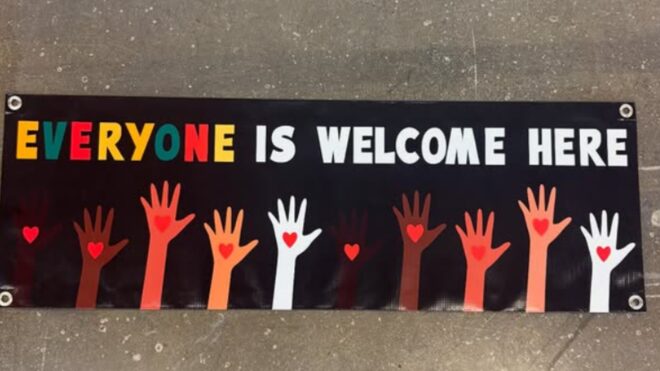
It’s hard to believe that I will be sending a second child off to kindergarten this September. Having already sent one and being a teacher for more than a decade doesn’t make it any easier. It has, however, taught me a few things on how to prepare my child and myself for this new journey.
Here are 10 practical things to teach your child before kindergarten, written by a teacher.
TRY to teach them:
1. How to Open Their Lunch Containers
There’s a limited time for lunch and snacks before outdoor play and classroom instruction resumes, so buying your child snacks and lunch containers that are easily accessible gives them more time to eat. We suggest taking granola bars, etc. out of their packages and putting them in snack containers or zip top bags or precutting the end of the package for your child. We also won’t have the time to warm up your child’s lunch, so cold lunches will have to suffice or purchasing a good-quality thermos is a must. Bento boxes are a favorite in my household, Bentgo Kids being our box of choice as it’s completely spill proof.
2. How to Follow Simple Instructions
Contrary to common belief, we do not expect your child to enter kindergarten knowing how to read, tie their shoelaces (send your child with Velcro straps please) and count to 100. However, it makes the transition to kindergarten a lot easier for everyone involved if they can follow basic instructions such as “Join us on the carpet,” “line up,” etc.
3. How to Dress Themselves
Winter is a kindergarten’s teacher worst nightmare. Trying to get a class of 5-year-olds dressed for 15 minutes of recess seems like an impossible task. Teaching your child how to put on snowpants, zip up a winter jacket, and putting hats and mittens on (gloves should be saved for the later years) is much appreciated by teachers. In winter, send your child to school daily with an extra pair of socks and mittens in their backpacks so they can wear dry ones later on that day if necessary.
4. How to Look After Their Own Things
This is a tough one, and by the third week of school the complaint I hear most often from parents is “Why is my child losing their hat, shoes, water bottle?” Labeling your child’s possessions will help with this, but you also need to teach your child the importance of looking after their own things and keeping them safe in their allocated cubby in the classroom. Start this practice at home by making sure they put their toys away after they play with them, putting their hats and shoes in a designated spot when they come in the door, etc.
5. How to Get A Good Night’s Sleep
The one thing I see most with kindergarten students is how tired they are all the time. And no wonder. The days are long for these children. Some children get dropped off at daycare before school starts, have a full day at school, and then attend an after-school program. The only solution for this to get a good night’s sleep. Teachers know that families are busy and sometimes it’s impossible to get them fed and in bed at a reasonable hour. However, try to not schedule too many extra curricular activities during the school week for the first term of kindergarten; you will learn to regret it.
6. How to Recognize Their Own Name
We would love it if your child came to kindergarten knowing how to spell and write their own name but often this is not realistic. However, if your child can recognize their name when their name tag is placed with the other students, and can point to their designated name tag on the classroom wall and on their cubby that’s a great start.
7. How to Use the Bathroom
Teachers know that bathroom accidents happen in kindergarten, trust me. That’s why we suggest sending a change of clothes to school with them for when it happens. And it happens a lot. However, having your child toilet trained is extremely important. Your child should know how to undo and do up their pants (try and not buy pants with buttons as well as zippers; it’s a recipe for disaster). Teaching your child how to wipe themselves appropriately afterward helps to avoid bladder infections, which are very common in young children. The teacher will definitely assist if necessary although we will not scratch itchy bottoms as I once asked by a kindergarten student.
8. How to Read a Book
Don’t panic with this one. When your child starts kindergarten, chances are they won’t know very many, if any, common sight words, and that’s ok. But your child should know how to hold a book rightside up, how to turn the pages from right to left, and how to treat books with respect (teacher books are sacred). The one question I get from parents time and time again is: How do I teach my child to read? The one thing you can do to improve your child’s reading is to read to your child daily. Read them stories, read them the labels on cereal boxes, point out street signs and store signs. Read, read, read to your child!
9. How To Be Away From You for Long Period of Times
I see some students whose first experience with separating from their parents is the first day of kindergarten, and this can lead to extreme separation anxiety. That being said, my son, who had several opportunities to be away from me before kindergarten, still cried every day for the first week of school. Having them in an activity that doesn’t involve you being present for even a short period of time will help the transition to kindergarten. Just remember the days are so long for a kindergarten student and they are bound to miss you and being home. It’s a big adjustment. Be patient with them and with yourself; it will get better as the weeks go by.
10. To Enjoy Being in Kindergarten
If this is the last summer before your child starts school, then trust me it’s a sacred one. Have as much fun with your child while they are still carefree and innocent and try and not stress over the things they “aren’t prepared for” when beginning school. My heart breaks every time I hear a student ask when the weekend is. Imagine living for the weekend already at such a young age. The reason I loved teaching kindergarten when I got the opportunity to do so was because it was amazing to watch these little people grow and explore learning while having fun.
Your child will be fine; you, on the other hand, might have a harder time letting go on the first day of school.
This post was written by Stephanie Duncan and reprinted with permission. It originally appeared here.



